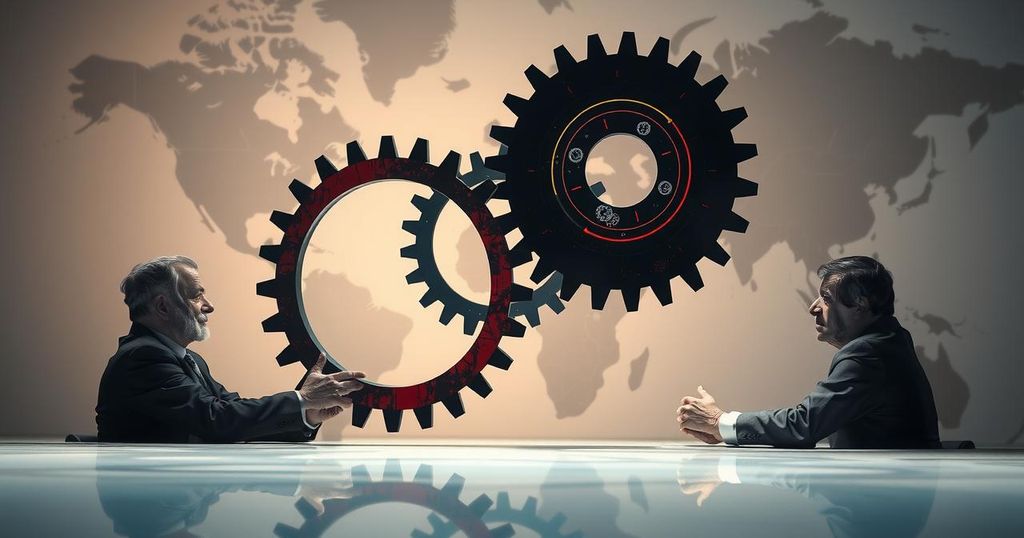The EU plans to review its critical raw materials agreement with Rwanda in light of the conflict in the DRC due to M23 rebel activities. Although immediate sanctions are not imposed, future measures may depend on the evolving situation. The growing scrutiny and backlash against Rwanda highlight a significant change in the EU’s diplomatic stance.
The European Union will reassess its critical raw materials agreement with Rwanda, as a reaction to the ongoing conflict in the eastern Democratic Republic of Congo (DRC). High Representative Kaja Kallas noted that while EU foreign ministers have refrained from immediately sanctioning Rwanda, they have indicated that potential sanctions may be imposed depending on the evolving situation. This follows the recent territorial advances made by Rwandan-backed M23 rebels in the DRC, particularly in North Kivu and Goma.
Belgium initiated the conversation regarding the suspension of the agreement, earning support from the European Parliament in a recent resolution. Kallas emphasized that the Memorandum of Understanding related to critical raw materials is now under scrutiny. The EU has also suspended its defense and security collaborations with Rwanda, reflecting growing concerns regarding the conflict’s gravity, with Kallas stating, “The situation is very grave and it’s on the brink of regional conflict.”
The Memorandum of Understanding, established in February of the previous year, is part of the EU’s initiative to secure essential raw materials for technologies such as microchips and electric vehicles. As part of the broader Global Gateway initiative, which involves a €300 billion infrastructure investment plan, over €900 million is allocated to Rwanda’s resource development. This framework aims to reduce Europe’s reliance on China for critical materials.
The particular focus of this deal is Rwanda’s significant role in global tantalum extraction and its production of other vital minerals. Additionally, Rwanda is seen to have potential for lithium extraction, which is crucial for electric vehicle batteries. Despite considerable allocation and optimism surrounding the agreement’s potential, increasing scrutiny following Rwandan actions in the DRC has led to calls for its reassessment.
Reports have emerged stating that the Rwandan-backed M23 is targeting mine-rich areas in the DRC, with accusations against Rwanda regarding the exploitation of these resources. International officials have previously hinted at Rwanda’s role in facilitating mineral smuggling from eastern DRC, leading to heightened tensions. Kallas’s recent announcement underscores a pivotal change in the EU’s relationship with Rwanda, especially given President Kagame’s historically friendly interactions with EU leaders.
The EU is revisiting its critical raw materials agreement with Rwanda due to escalating conflicts linked to Rwandan-backed M23 rebels in the DRC. While immediate sanctions were not enacted, potential measures will be assessed based on the conflict’s progression. As concerns grow about Rwanda’s involvement in resource exploitation, the EU’s collaboration with Rwanda faces increasing scrutiny, indicating a shift in diplomatic relations.
Original Source: www.euronews.com




